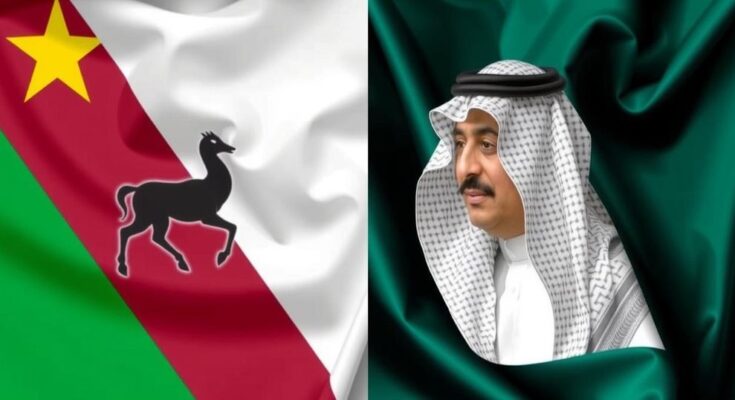Zambia and Saudi Arabia have signed a debt restructuring agreement to reorganize over $130 million in debt owed by Zambia. The deal, complemented by a $35 million loan for hospital construction, reflects ongoing partnerships aimed at ensuring fiscal sustainability. This move follows Zambia’s earlier restructuring with France and highlights the complexities of managing sovereign debt amidst economic challenges.
Zambia and Saudi Arabia have officially signed a debt restructuring agreement aimed at rescheduling more than $130 million of Zambia’s debt to Saudi Arabia, as reported by DNE Africa. The agreement was executed on Thursday in Lusaka by Situmbeko Musokotwane, Zambian Minister of Finance and National Planning, alongside Sultan bin Abdulrahman Al-Marshad, Chief Executive Officer of the Saudi Fund for Development.
Musokotwane emphasized that the restructuring reflects a shared commitment to addressing Zambia’s debt situation, ensuring fiscal sustainability, and promoting economic growth. He expressed gratitude towards the Saudi Fund for Development and its leadership for their collaborative efforts. Al-Marshad underscored that this agreement reflects the ongoing development partnership between the two nations. Additionally, both countries approved a $35 million loan to fund the construction of the King Salman Specialized Hospital in Zambia.
This initiative follows a prior debt restructuring agreement that Zambia secured with France on December 8, which was also intended to alleviate Zambia’s debt burdens in alignment with the goals of the International Monetary Fund-supported program. In conjunction with this effort, France is providing Zambia with a budgetary aid of €16 million over the span of 2023 to 2024, designed to finance emergency food programs triggered by droughts related to the El Niño phenomenon.
Zambia’s public debt had previously been significantly alleviated under the Heavily Indebted Poor Countries initiative in 2005. Following that, the nation attracted considerable investments, especially from Chinese state-owned banks, which aimed at bolstering economic diversification. However, the Center for Global Development (CGD) recorded that these investments correspondingly raised Zambia’s debt levels, leading to a sovereign default in December 2020.
The ongoing sovereign debt restructuring, which extends until 2024, has involved extensive negotiations under the G20 Common Framework, prolonging Zambia’s economic stagnation for over 3.5 years. CGD analysis indicates that these lengthy negotiations have exposed fundamental weaknesses in the Common Framework, acknowledged by the broader development community, underscoring the need for reform to better support low-income countries facing similar debt crises.
The debt restructuring agreement between Zambia and Saudi Arabia arises from Zambia’s ongoing efforts to stabilize its economy following significant debt accumulation, which culminated in a sovereign default in December 2020. As a response to this crisis, Zambia has sought to renegotiate terms with multiple international creditors as part of a broader strategy supported by the International Monetary Fund to return to a sustainable fiscal path. Previous experiences with debt restructuring highlight the difficulties and complications faced by countries like Zambia in managing and repaying their obligations, particularly under the G20 Common Framework which has faced criticism for its lengthy processes. This agreement, alongside other such deals, aims to alleviate immediate fiscal pressures while fostering long-term economic recovery and growth.
The formalization of the debt restructuring agreement between Zambia and Saudi Arabia signifies a critical step towards achieving fiscal sustainability and economic growth for Zambia. By renegotiating debt terms and securing additional funding for essential infrastructure, Zambia is working diligently to navigate its financial challenges. Moreover, the experiences from these negotiations emphasize the ongoing need for reforms within international debt management frameworks. Ultimately, success in these endeavors will require continued cooperation from international partners and a commitment to responsible economic governance.
Original Source: www.dailynewsegypt.com




